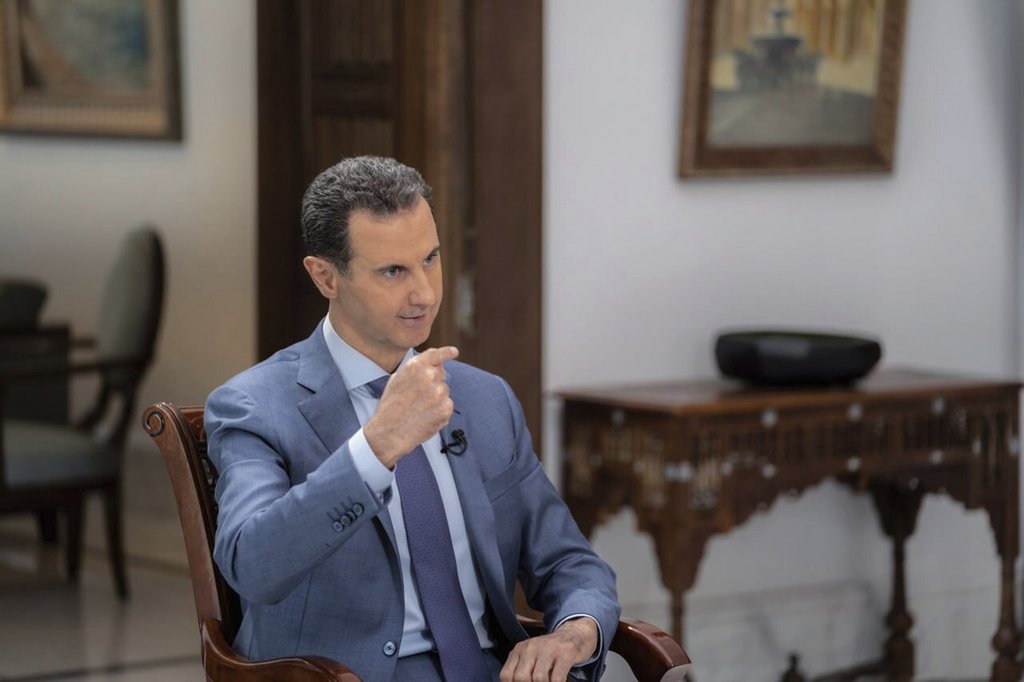
Chinese President Xi Jinping will meet his Syrian counterpart Bashar Al-Assad on the sidelines of the Asian Games this week, as the Arab leader makes his first trip to China in nearly 20 years.
Xi will hold a welcome banquet for the event and conduct bilateral activities on Friday and Saturday, the Foreign Ministry in Beijing said. Assad arrived in the eastern tech hub of Hangzhou on Thursday and is expected to attend the opening ceremony of the games, which were postponed last year due to the Covid pandemic.
The Syrian delegation includes the country’s minister of economy and trade, Mohammad Samer al-Khalil, the state-run SANA news agency reported earlier.
Dignitaries from countries including South Korea, Cambodia, Nepal, Kuwait, Timor-Leste and Malaysia will also travel to China for the event, according to the ministry’s statement.
China has been stepping up its diplomatic efforts in the Middle East, most notably by helping broker a detente between Iran and Saudi Arabia in March. During a visit to Beijing by Palestinian Authority President Mahmoud Abbas in June, Xi proposed an international peace conference on the Israeli-Palestinian conflict, though there have been few signs of progress on that.
Read More: China Just Brokered a Historic Truce Between Saudi Arabia and Iran. Can It Do Ukraine Next?
China’s push comes as the Middle East has become less of a priority for the U.S. It also gives Beijing more sway in the Persian Gulf, the world’s biggest source of petroleum. Last month, China’s campaign for the BRICS bloc to add more members succeeded, with top oil exporter Saudi Arabia joining, as well as Iran, Egypt, and the UAE.
Assad last visited China in 2004, about four years after he became president, when he met former Chinese leader Hu Jintao. It was the first time a Syrian head of state went to China since the two countries formed diplomatic relations in 1956.
The Syrian government’s isolation resulting from Assad’s crackdown on opponents after the 2011 Arab Spring uprisings is easing. In May, the Arab League states moved to reinstate Syria, disregarding reservations voiced by the U.S.
China and Russia have blocked attempts to sanction Assad at the U.N. Security Council, prompting the U.S. and European Union to impose unilateral restrictions against him, his government, and his supporters. Backing from Russia, Iran, and its allies in Lebanon has helped Assad survive the country’s ensuing civil war.
More Must-Reads from TIME
- Why Biden Dropped Out
- Ukraine’s Plan to Survive Trump
- The Rise of a New Kind of Parenting Guru
- The Chaos and Commotion of the RNC in Photos
- Why We All Have a Stake in Twisters’ Success
- 8 Eating Habits That Actually Improve Your Sleep
- Welcome to the Noah Lyles Olympics
- Get Our Paris Olympics Newsletter in Your Inbox
Contact us at letters@time.com